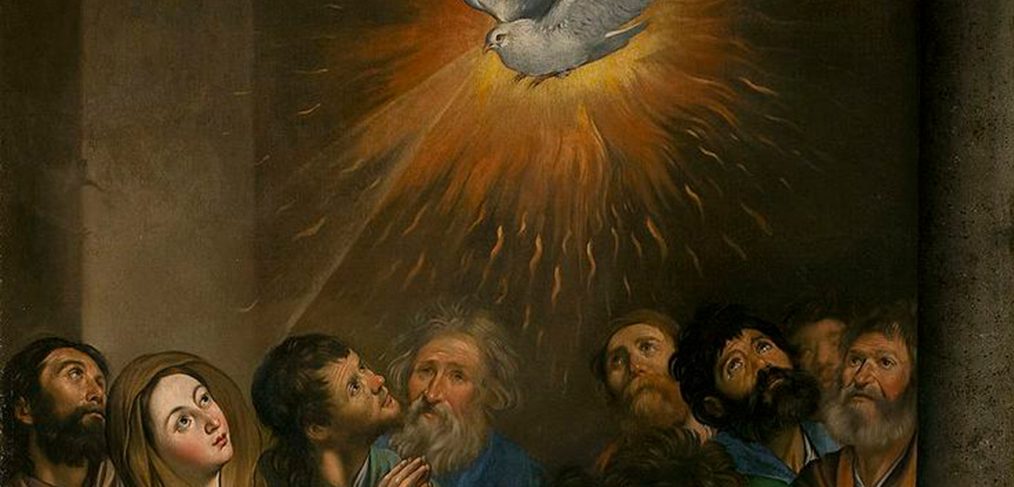All sorts of questions fill the air on Easter morning, on that first morning of our new life: “Who will roll us back the stone?” “Woman, why are you weeping? Whom do you seek?”
Everyone is wounded by original sin and by subsequent personal sins. Everyone has been wounded by the sins of others. What we do with these wounds largely decides the depth of our inner peace.
Having just read in the Acts of the Apostles about Pentecost, the day when the Holy Spirit came down on the Lord’s disciples, we are conscious of being present at the great display of God’s power with which the Church’s life began to spread among all nations.
Once more the liturgy reminds us of the final moment in Jesus’ life among men, his ascension into heaven.
Among the Saints, both ancient and modern, it has never seemed excessive to long continually for God’s mercy, and to plead for it on one’s own behalf, as well as for the whole world.
You and I need to be made anew, we need to wake up from the slumber of feebleness by which we are so easily lulled and to become aware once again, in a deeper and more immediate way, of our condition as children of God.
“It has always seemed logical to me that the most holy humanity of Christ should ascend to the glory of the Father. The ascension has always made me very happy. But I think that the sadness that is particular to the day of the ascension is also a proof of the love that we feel […]
“Christ is alive.” This is the great truth which fills our faith with meaning. Jesus, who died on the cross, has risen.
This Holy Week, and afterwards every day, has to be a leap of quality for us, asking our Lord to completely fill our lives. We have to communicate to many people the new life that Jesus gained for us by the Redemption.
Are we as aware as the first Christians were of the Spirit dwelling within us? Do we need to learn to perceive what was so obvious to them? What evidence is there that God abides in us and we in Him?
“At several points in the Gospel, Jesus sensitively anticipates the longing that His ascension will leave in us: ‘The days are coming when you will desire to see one of the days of the Son of man, and you will not see it” (Luke 17:22).
The Lord warns us against angrily calling another “You fool!” (Mt 5:12). But the fact that He calls certain individuals foolish shows that some merit the epithet (cf. Mt 7:26, 23:17, et al.).
In 1990, Israeli construction workers uncovered a chamber tomb containing a very ornate ossuary (or bone box) with the name “Joseph, son of Caiaphas” inscribed on it.
In the spiritual life we have to reckon with a unique “balance of power” between what God can do and what we can do.
The liturgical prayers for the Solemnity of the Lord’s Ascension ask that we might follow Christ to the place where He has gone.
The story of two discouraged men making a long journey home after having witnessed the Lord’s grueling passion (Luke 24:13-35) is pure balm for the suffering soul, especially for any suffering in the ways St Josemaria indicates: having lost a sense of hope or of meaning in life.
“He has been raised; he is not here. But go into Galilee; there you will see him” (cf. Mk 16:6-7).
Until now you had known that the Holy Spirit was dwelling in your soul, to sanctify it… But you hadn’t really grasped this truth about his presence. Now you feel his Love within you, and you want to talk to him, to be his friend, to confide in him… The Forge, no. 430 The New […]
If you live in the presence of God, high above the deafening storm, the sun will always be shining on you; and deep below the roaring and destructive waves, peace and calm will reign in your soul. ST. JOSEMARIA ESCRIVA The Forge, no. 343 “They saw Jesus walking on the sea and coming near the […]
God has a special right over us, his children: it is the right to our response to his love, in spite of our failings. This inescapable truth puts us under an obligation which we cannot shirk. But it also gives us complete confidence: we are instruments in the hands of God, instruments that he relies […]




















